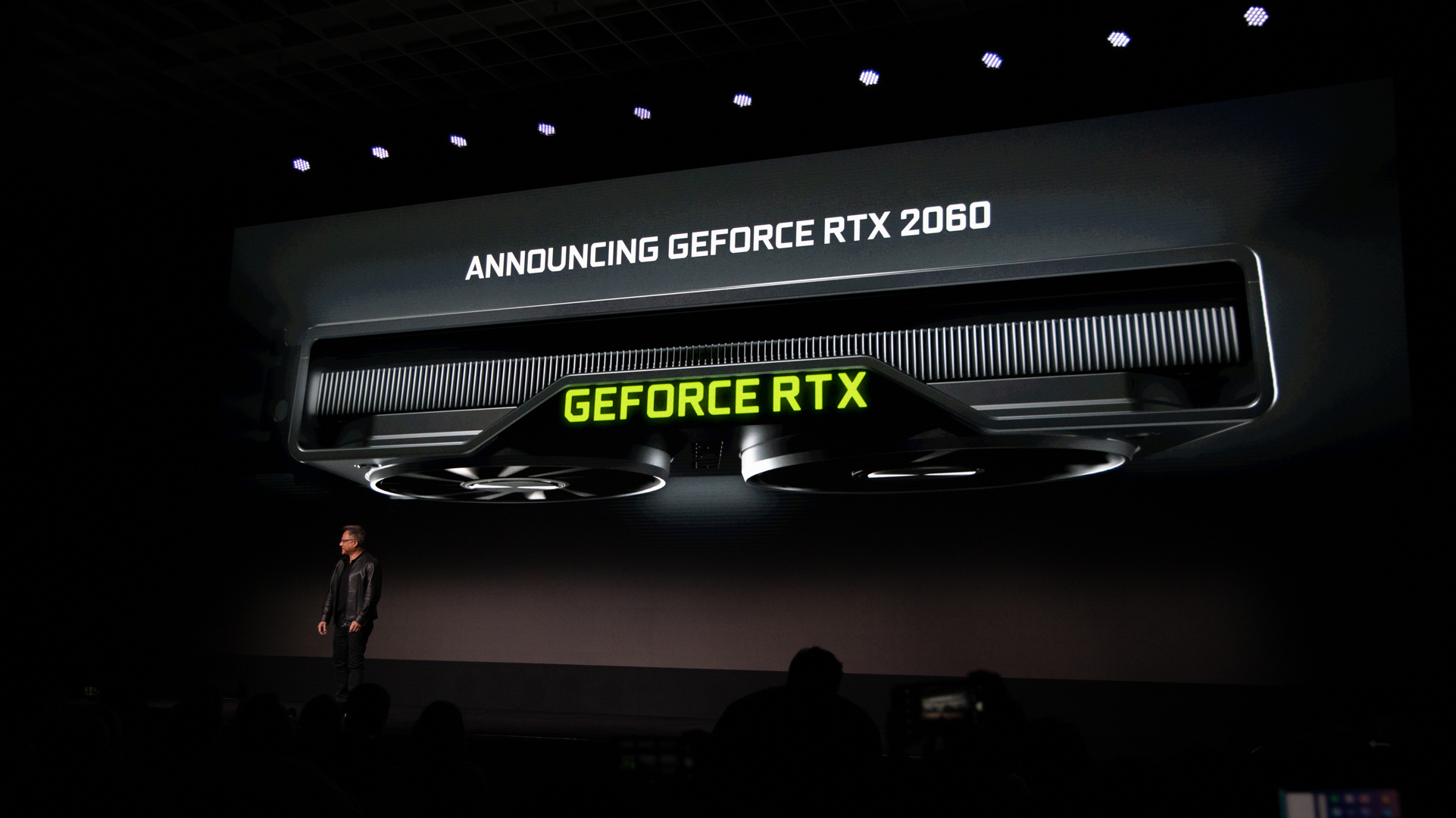Nvidia crushes AMD with 80% GPU market share ahead of Ampere launch
Team Green has increased slice of the dGPU market by 10% - at the expensive of AMD

Nvidia claimed 80% of the discrete GPU market in the second quarter of 2020, stealing market share from rival AMD.
That’s according to the latest figures from Jon Peddie Research (JPR), which claim that Nvidia saw its share of the graphics card market increase from 71% in the second quarter of 2019 to 80% in the Q2 2020.
That impressive growth has come at the expense of rival AMD, which saw its slice of the market shrink from 29% to 20% over the same 12-month period.
- Find the best Nvidia GPU for you
- Check out all the best PC games
- Everything you need to know about Big Navi
That’s not to say AMD is struggling to flog its Radeon graphics cards, as JPR reveals that sales are up for both companies; AMD shipments increased by 8.4% between Q1 and Q2 2020, while shipments of Nvidia GPUs increased by a whopping 17.8%.
That's because of the pandemic, JPR claims, which lead to an unusually busy second quarter overall for GPU purchases - graphics card sales were up 2.5% in Q2 2020, with the dGPU market surging 6.55%.
Things aren’t looking quite as rosy for Intel, though, which saw discrete GPU sales decrease by 2.7% during the three-month period.
It will be interesting to see what Q4 looks like, as both Nvidia and AMD are currently gearing up to launch their next-generation graphics cards.
Get daily insight, inspiration and deals in your inbox
Sign up for breaking news, reviews, opinion, top tech deals, and more.
Nvidia is planning to showcase its Ampere-based GeForce RTX 3000-series GPUs at an event on 1 September, and AMD is expected to follow shortly after with the launch of its RDNA 2 ‘Big Navi’ cards.
Carly Page is a Freelance journalist, copywriter and editor specialising in Consumer/B2B technology. She has written for a range of titles including Computer Shopper, Expert Reviews, IT Pro, the Metro, PC Pro, TechRadar and Tes.
